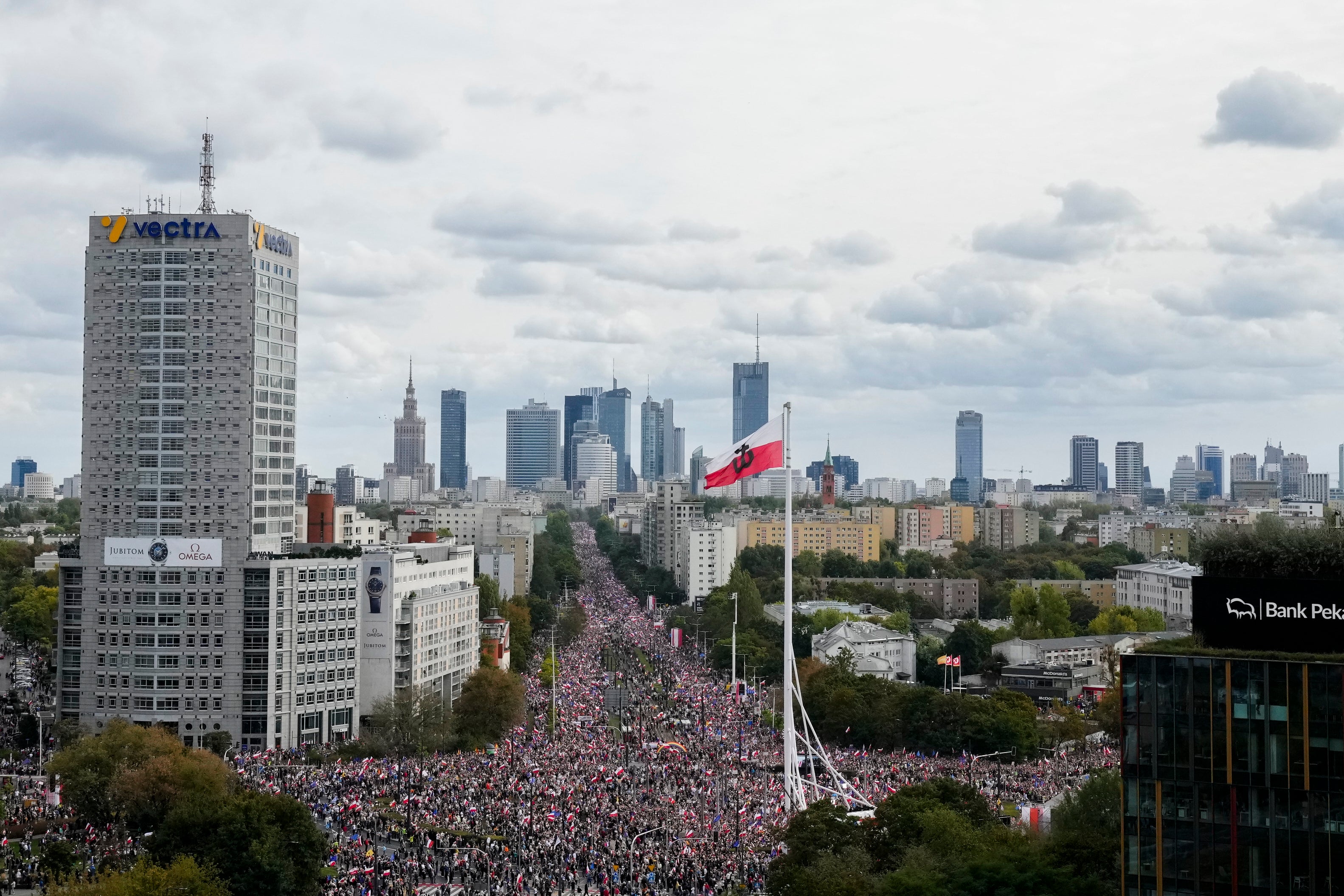EU demands answers from Poland about visa fraud allegations
A senior European Union official says Poland must provide answers about allegations that temporary worker visas were sold to thousands of migrants

Your support helps us to tell the story
From reproductive rights to climate change to Big Tech, The Independent is on the ground when the story is developing. Whether it's investigating the financials of Elon Musk's pro-Trump PAC or producing our latest documentary, 'The A Word', which shines a light on the American women fighting for reproductive rights, we know how important it is to parse out the facts from the messaging.
At such a critical moment in US history, we need reporters on the ground. Your donation allows us to keep sending journalists to speak to both sides of the story.
The Independent is trusted by Americans across the entire political spectrum. And unlike many other quality news outlets, we choose not to lock Americans out of our reporting and analysis with paywalls. We believe quality journalism should be available to everyone, paid for by those who can afford it.
Your support makes all the difference.Poland must clarify allegations that its consulates in Africa and Asia sold temporary work visas to migrants for thousands of dollars each in a scheme that could undermine free travel in Europe, a senior European Union official said Tuesday.
European Commission Vice-President Margaritis Schinas said that travel within the 27-nation ID-check free travel zone known as the Schengen area relies on trust between the members, which include most EU countries plus Iceland, Liechtenstein, Norway and Switzerland.
“What happens in a Schengen state affects the functioning of all Schengen countries. That is why the alleged cases of fraud and corruption in the Polish visa system are extremely worrying,” Schinas told EU lawmakers in Strasbourg, France.
“If third-country nationals have been allowed the right of free movement within Schengen, without respecting the appropriate conditions and procedures, this would amount to a violation of EU law, in particular the EU visa code,” he said.
Schinas’s remarks come just as Poland’s right-wing ruling party campaigns for Oct. 15 elections. Migration is a hot election topic and the governing Law and Justice is facing questions about the alleged scheme just as it seeks a third term in office.
Polish authorities, including the ruling party leader, insist there is no scandal. They say that seven people have been arrested in the ongoing investigation and that there were fewer than 300 cases of irregularities.
But Poland’s main opposition leader, Donald Tusk, has accused Law and Justice of hypocrisy for allegedly admitting large numbers of foreign workers despite its anti-migrant rhetoric and a new border wall.
Tusk – a former prime minister and once a top EU official himself – and Polish media allege that the government admitted about 130,000 Muslim migrants last year through the supposed scheme despite heated statements aimed chiefly at non-Christians.
Poland’s Interior Ministry said that “less than 30,000 workers from Muslim countries came last year.”
The European Commission is the EU’s executive branch, and it polices the application of the bloc’s laws. Schinas said the commission is seeking answers to several questions.
“We want to have clarity, for instance on the numbers and types of visas and consular posts affected, as well as the whereabouts of the visa holders,” he said.
“We also want clarity on the structural measures that the Polish authorities are taking to ensure that the system is protected against any possible fraud and corrupt behavior,” Schinas said. He added: “We need full clarity to reinstate trust.”
According to the EU statistics agency Eurostat, Poland issued some 700,000 “first residence” permits last year to citizens of 148 non-EU countries, making it the bloc’s top issuer of permits. The recipients were meant to stay in Poland, but ID-check free travel makes it easy to move around.
Migration is also a hot topic more broadly after major European political groups met last week to prepare their campaign strategies for EU-wide elections next June.
Schinas and commission President Ursula von der Leyen are part of the conservative European People’s Party, the biggest bloc in the EU parliament. They want to woo the party of Italian Prime Minister Giorgia Meloni into the fold and have taken a tougher line on migrants recently.
___
Associated Press writer Monika Scislowska in Warsaw contributed to this report.